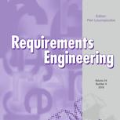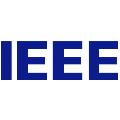Requirements Engineering (RE) is a critical phase in the software development process that generates requirements specifications from stakeholders' needs. Recently, deep learning techniques have been successful in several RE tasks. However, obtaining high-quality requirements specifications requires collaboration across multiple tasks and roles. In this paper, we propose an innovative framework called MARE, which leverages collaboration among large language models (LLMs) throughout the entire RE process. MARE divides the RE process into four tasks: elicitation, modeling, verification, and specification. Each task is conducted by engaging one or two specific agents and each agent can conduct several actions. MARE has five agents and nine actions. To facilitate collaboration between agents, MARE has designed a workspace for agents to upload their generated intermediate requirements artifacts and obtain the information they need. We conduct experiments on five public cases, one dataset, and four new cases created by this work. We compared MARE with three baselines using three widely used metrics for the generated requirements models. Experimental results show that MARE can generate more correct requirements models and outperform the state-of-the-art approaches by 15.4%. For the generated requirements specifications, we conduct a human evaluation in three aspects and provide insights about the quality
翻译:暂无翻译




